“I will miss Cambodia a lot; there is something with Cambodia that gets to you. So, definitely, I will try to return and visit once a year or so. It might be very frustrating at times but the country and its people are fantastic!” Swedish Ambassador to Cambodia, Anna-Maj Hultgård, concluded as she was about to end her stint there.
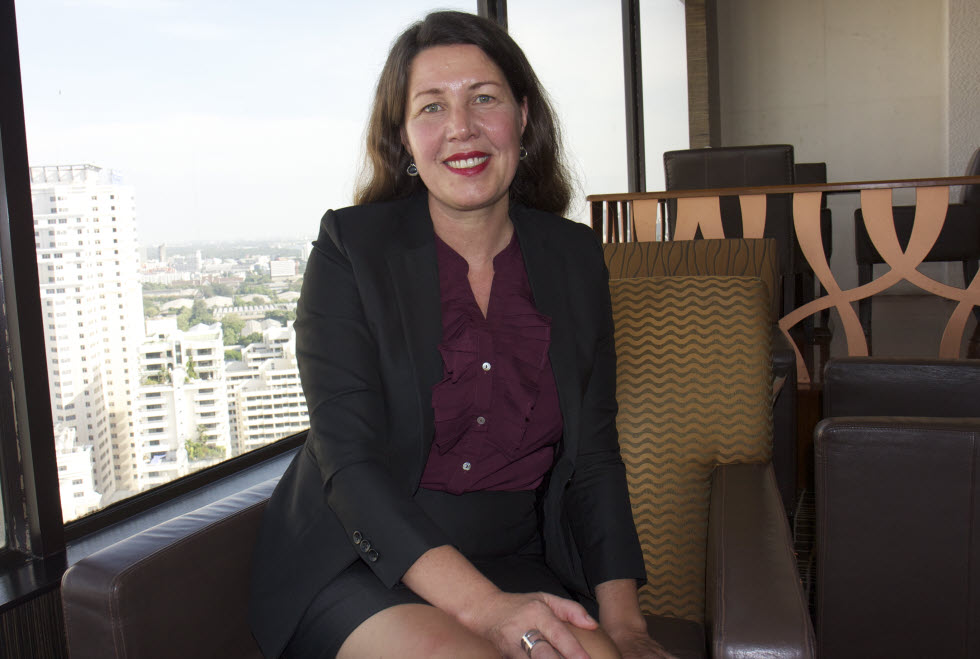
She returned to the headquarters of Sweden’s Ministry of Foreign Affairs this summer.
Having visited nearly all corners of Cambodia, the ambassador has amassed many insights that she gets to share with ScandAsia’s readers at this junction in her diplomatic career.
She encourages Swedes who are already in the region or are passing through to give Cambodia a chance: “Go and visit and get an updated image of what Cambodia is, and see the opportunities. Once you are there you’ll get the impression of a forward-looking society. There are challenges, in terms of for example wide-spread corruption. But there are opportunities not to miss out on, especially for businesses already being in the region.”
She made this statement at a Business Sweden seminar in Bangkok and has also been to present in Singapore and on a road show to Sweden, along with the other ambassadors based in Asean.
“It’s not always Cambodia itself that will draw the attention but by being part of the Asean market, with its 600+ million people, makes a difference,” believes Anna-Maj.
“My work has been focused on making Cambodia more known, to provide a more up-to-date, balanced view that is more about what Cambodia represents today. It’s still early days but I think it’s coming, slowly.”
The preconception of this as still being a war-torn country she thinks does not match with reality.
“It’s also visible that it’s not only about urban development – people are getting better livelihoods in the countryside as well, which I think is promising.”
“We are happy to assist from the embassy and Business Sweden is willing to support.”
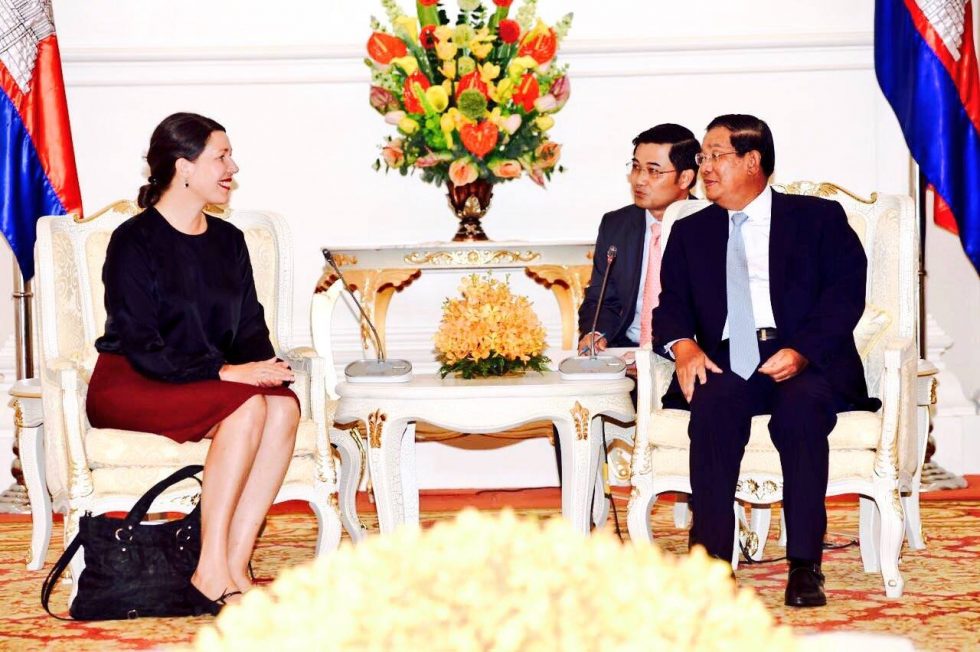
“And EuroCham Cambodia has in the last two years been very active and we work closely with them. That’s also a natural partner in support of and in collaboration on business and investment locally in Cambodia,” says the ambassador.
The organisation handling foreign investment is CDC – The Council for the Development of Cambodia.
“Within CDC a major, industrial plan, which is backed by the whole government, has been put forward that has a long-term strategic goal and where they also point to certain sectors. They have identified obstacles to further growth that are very clearly spelled out, and it has been given the highest priority for all ministries to address those.”
There is a willingness to do so, on a political level and within the agencies, but it still takes some time to implement and take the necessary steps. All institutions in Cambodia are still very bureaucratic, concludes Anna-Maj.
There is also an ongoing private-public business forum dialogue, where, among others, EuroCham has put forward very clear recommendations.
“From the embassy we are very active on issues that might also be challenging for companies, concerning corruption and human rights issues. That is also in support of business to be present also in sometimes challenging markets.”
“Cambodia has been relying on aid to a large extent, but also been seeing immense economic growth. Even if from a very low level Cambodia is one of the top ten countries in terms of fastest growing economies in the world!”
All the institutions and the government within Cambodia are working to support business and investment. They have also been quite successful with the former trade minister hand-picked from the business sector, and the current trade minister who used to be his deputy and knows business and do not have the bureaucratic approach.”
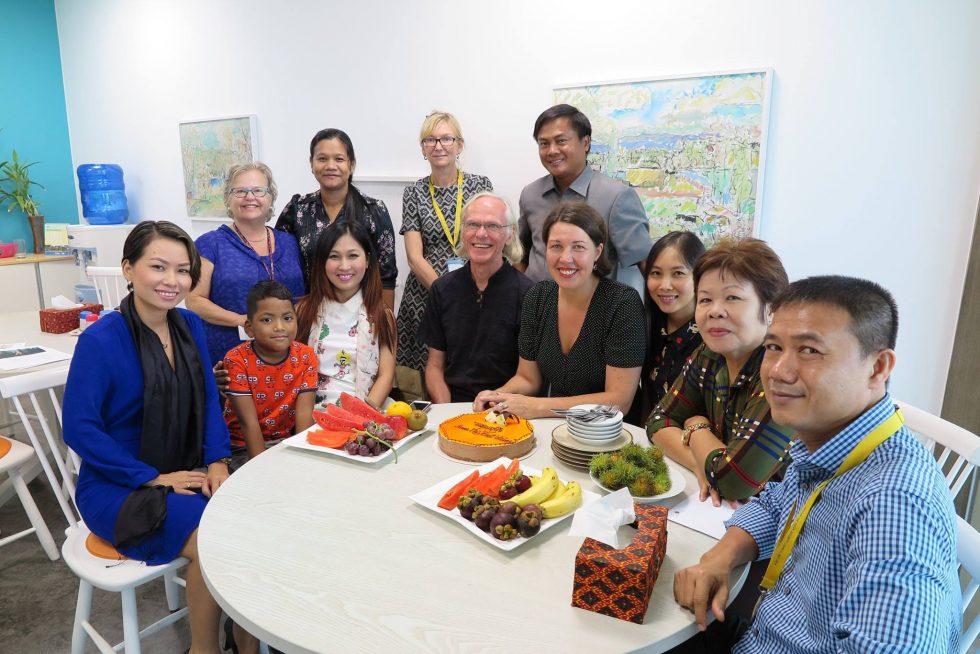
“From what I have seen, which is quite impressive, is that there is strong support and awareness from the government about the need to attract business and investment.”
“I also like is that Cambodia is a very open and international; they look with curiosity towards everything foreign. There is an urge to get more brands in, and you can see it on policy level as well; an acknowledgement that Cambodia is a small market. So it’s important to have an export-driven economy and be outward-looking. They need to be open, so trade and investment rules and regimes are very liberal, and I don’t think they will ever turn into a protectionist society.”
During her posting in Phom Penh Anna Maj has been able to utilise Sweden’s established and strong connections in the country.
“I have focused on really broadening and using also the really excellent network and relations we have, given the long-term, development cooperation – and build on that and to increase the focus on both trade and investment but not least making Sweden more known, also in terms of cultural exchange and participation and through visibility to what activities we are doing at the embassy.”
The ambassador says she has tried to be smart by using social media, and been successful in reaching young Cambodians well, who are “very apt and keen on social media”.
The embassy has been active in book and education fairs, and in relation to the ongoing development support from Sweden, where humanitarian efforts have gradually given way to long-term cooperation, since Sweden’s aid to Cambodia began in 1979.
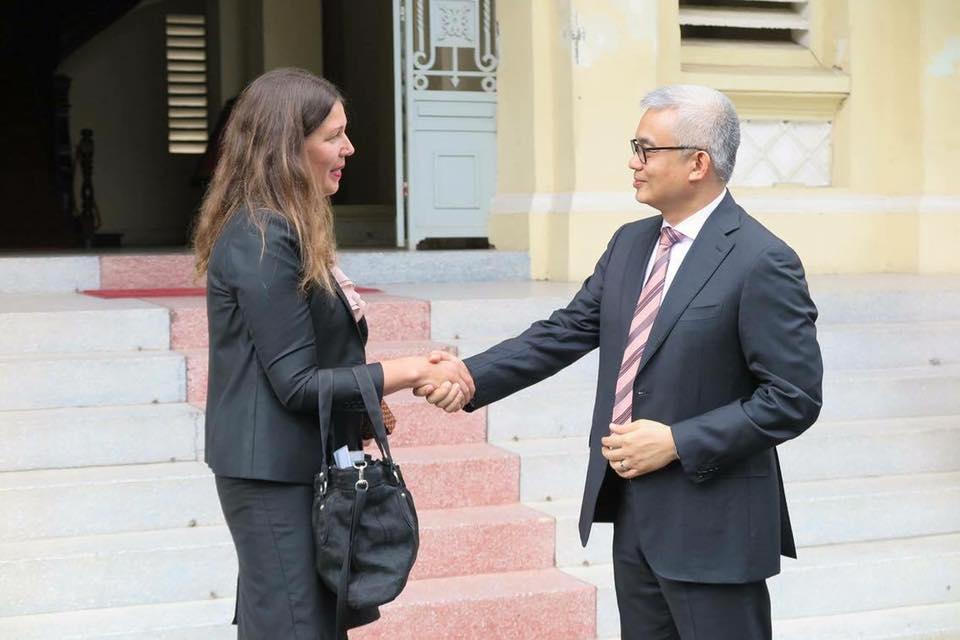
The Swedish International Development Cooperation Agency (Sida) is currently implementing the Swedish strategy for development cooperation with Cambodia (2014-2018), aiming to: improve the conditions for democratic development in Cambodia; improve the opportunities for people living in poverty to contribute to and benefit from economic growth; and increase resilience to climate change.
Cambodia’s steady growth combined with the transition from a post-conflict to a more stable situation, has led to improvements for Cambodia’s people. A large share of the population, however, still live just above the poverty line and are still very vulnerable to any economic, ecological or climate changes, Sida evaluates.
“To be fair, Cambodia is seeing tremendous development in terms of addressing poverty. And we are a bit surprised that the economic growth is still relatively inclusive, even though you can just by going around in Phnom Penh still see quite huge differences,” comments Anna Maj. “Just during the last ten years the poverty rate has come down from almost 50 to 17 per cent, which is a very good. Also in addressing all the Millennium Goals the country has been very successful. But on the political side, all the democratic institutions are there but they are weak, and it’s been the same party in power and also the same prime minister for thirty years.”
The governing party holds much of the power, putting opposition parties in a vulnerable position. Poor people’s rights are strongly limited. Sida is providing support to the work of non-governmental organizations (NGOs) at national and grass-roots level.
Through the work of supporting NGOs, Sida is promoting for instance legal advice, observations and documentation of human rights violations and anticorruption activities.
Sida supports the democratic processes by working on a broad level to support public administration reforms as well as public participation for increased democracy. By supporting the government’s programme for decentralization publicly-elected local authorities in rural areas have been established, leading to greater self-determination.
“It’s about meeting and supporting both the supply and the demand side of governance, which I think is the successful approach. I saw that around the last elections people voiced their concerns and also were very clear on their expectations much more than before and I think that our support has been contributing to that. And now it’s important that this momentum is not lost when political and civil society space is a bit more questioned,” says the ambassador.
In one initiative supported by UNESCO and the Embassy of Sweden, a group, involving more than 15 civil society organizations, academia and ministries, is at the forefront of efforts concerning access to information.
Gender equality is one area where Anna Maj believes has been able to make a difference: “I am one of few female ambassadors, and also given the priority in general Sweden puts into this topic, combined with the interest from Cambodians on all aspects of life to learn more and interact on gender and gender equality issues. And that affects or influence in many work areas where we try to have a gender equality perspective.”
Within education Sida’s long-term support has contributed to 95 per cent of the country’s children starting school today. However, Only 65 per cent of the women are able to read and write, and only a few of the children continue to higher education, which is a large problem.
Sweden builds further on the trust it has built up with key stakeholders through its long-term commitment in the primary school sector in order to gradually increase the focus on education geared to the needs of the labour market, thus contributing to increased employment.
Cambodia’s biggest potential the ambassador sees in its young population.
“The demographic factor talks to Cambodia’s advantage; more than 65 per cent are under 30 years old, and they are more educated than previous generations. When I meet them I notice a great potential. Cambodia is now moving up to become a lower-middle income country soon, but I think the potential is still that it’s competitive in terms of labour costs, though still there is work to be done on the skills side.”


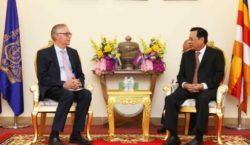
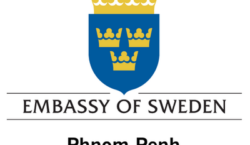
One Comment on “Swedish Ambassador on Cambodia’s potential”